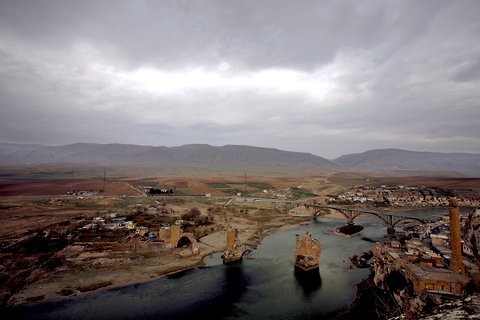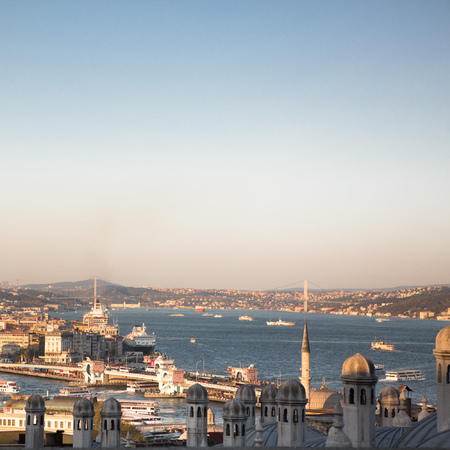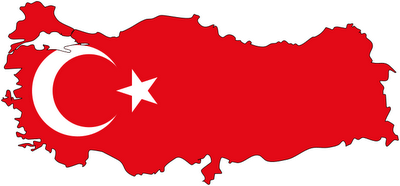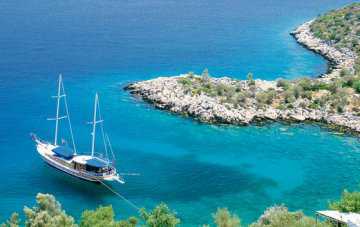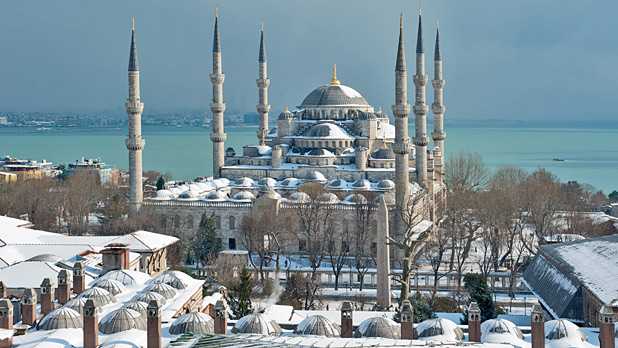| Wednesday, 22 October 2008 | |
|
Hundreds of supporters of the outlawed Kurdistan Workers’ Party (PKK) have been protesting across southeastern and eastern Turkey since Saturday, alleging mistreatment of former PKK leader Abdullah Öcalan.Observers, however, say the real reason behind the demonstrations is the Kurdish issue. “The government has been timid in two areas. One is the resolving of the Kurdish issue, and the other is correcting mistakes in the strategy of fighting terrorism,” said Sedat Laçiner, who heads an Ankara-based think tank. He added that the PKK uses Öcalan when it wants to raise its voice. “In the PKK’s general meeting last August, they decided on a plan which involves military and police targets, civilian targets in big cities and the use of suicide bombers,” he said. One protester died of gunshot wounds on Monday after clashes with police in support of Öcalan, who is serving a life sentence on İmralı Island in the Sea of Marmara. Clashes between protesters and police intensified as the week began, ahead of a visit by Prime Minister Recep Tayyip Erdoğan to the region’s largest predominantly Kurdish city, Diyarbakır. Dozens have been arrested. Some shop owners in the region closed their stores either in support of the protestors or in fear of violence. Laçiner said the PKK needs to raise its voice because the ruling Justice and Development Party (AK Party) has increased its strength in the region, as seen in the 2007 general elections, and dealt the PKK heavy blows with military operations. The AK Party aims to win Diyarbakır’s mayoral post in the coming local elections, scheduled to be held in March of next year, leading the pro-Kurdish Democratic Society Party (DTP) to target the ruling party. DTP leader Ahmet Türk lambasted the government yesterday while speaking in Diyarbakır, a symbolic city for the DTP because pro-Kurdish parties have dominated local elections for the past two decades. Türk accused the government of moving Turkey’s cultural mosaic toward “separation.” Speaking in front of the Greater Diyarbakır Municipality Guest House, Türk said the Kurdish issue was one of Turkey’s basic problems, in existence since the foundation of the republic. “Policies of denial, assimilation and eradication affected people. Only Kurds resisted. They still resist and own their identity,” he said, adding that this is how the PKK flourished, especially following restrictive policies instituted by the military regime following the Sept. 12, 1980 coup. DTP deputies termed the alleged treatment of Öcalan “humiliating and unacceptable” and noted that the AK Party would be responsible for the public indignation the incident would lead to. The authorities deny any mistreatment of Öcalan. Bus services were halted and shops closed in Diyarbakır on Monday after the PKK urged locals to protest Erdoğan’s visit. Kurdish intellectual and writer Altan Tan said the government needs to trust the public. “The AK Party should stand on the right side, the people’s side. It should take steps for more democracy,” he told Today’s Zaman. Speaking about the protests, he said it may be the PKK or some deep-state related elements that are trying to raise tension and create a state of instability. “Forces have been trying to overthrow the government for the last two years. The closure case against the AK Party was a part of it,” he said in reference to an attempt to close the AK Party and ban several of its politicians from politics. “If the scenes of war repeat and the government does not take action, a return to a Sept. 12-like regime should be expected,” he warned. Esat Canan, an ethnic Kurd and a former deputy from the opposition Republican People’s Party (CHP), said the Kurdish issue cannot be solved solely by military means. “Recently, military solutions gained precedence. Allegations of Öcalan’s maltreatment were the straw that broke the camel’s back,” he said, referring to the demonstrations. Turkey recently saw a series of deadly attacks on soldiers by the PKK. The military responded by pounding suspected PKK positions inside Turkey and across the border in northern Iraq, where many PKK members are believed to be based. Some 40,000 people have died in PKK-related violence since 1984, when the group took up arms to try to carve an ethnic Kurdish homeland out of southeastern Turkey. “I am worried about the situation,” Canan said, but expressing belief that Parliament can “extinguish” the fire by passing an amnesty law together with implementing democratic steps. As for the government, Laçiner said a “mobilizing movement” is needed. “The government’s everyday agenda should be full of measures toward solving the Kurdish issue. The government should be in constant touch with nongovernmental organizations in the Southeast; ministers should be involved and people living in the region should be listened to and embraced.” If the crisis cannot be managed well, he warned, tensions will rise. |
-
- guardian.co.uk,
- Monday October 20 2008 13.30 BST
At last week’s Frankfurt book fair, where Turkey was this year’s guest of honour, Orhan Pamuk used his keynote speech to alert the world to the fact that hundreds of writers continue to be prosecuted in Turkey. Numerous articles in the Turkish penal code make it an offence to insult Turkishness, the memory of Ataturk, the judiciary, or the army. He went on to lament the consequences: “A century of banning and burning books, of throwing writers into prison, killing them or branding them as traitors and sending them into exile, continuously denigrating them in the press; none of this has enriched Turkish literature – it has only made it poorer.”
His remarks were widely reported in the US and European media, and somewhat less widely here in Britain. Most noted that President Gul was in the audience; some also noted that when he stood up to give his own scripted speech, he made no mention of 301, the infamous article under which Pamuk was prosecuted for insulting Turkishness three years ago. Quite a few also expressed surprise about something else Pamuk mentioned in passing – that residents of Turkey cannot access YouTube. This despite the fact that the problems with YouTube go back more than a year. Almost all reports were phrased in such a way as to suggest that censorship in Turkey is getting worse, not better. As usual, the story is larger than that – and a great deal more interesting.
But before we go there, a few facts might come in handy. Since the beginning of the republic, Turkey has had draconian censorship laws. Its first penal code was modelled on that of Mussolini. It was replaced by a new penal code in 2005, ostensibly to bring Turkey closer to European social democratic norms, but as we all know now, it, too, goes to extraordinary lengths to protect the state, its official history, and its ideology from criticism. However, at no point have Turkey’s penal codes wholly suppressed democratic debate. The proof is in the roster of Turkish scholars, journalists, writers, politicians and human rights activists who have been prosecuted and persecuted for their words, having openly exercised their right to free speech. It is to this long tradition that Pamuk referred in his Frankfurt speech. In almost all western accounts of Turkey and censorship, this is left out.
Here we come to another problem that is, in my view, as serious as the ones we see in Turkey – the coverage of Turkey in the western media, which is very poor. This is not the fault of individual journalists or editors – in Britain, as in the US and Europe, there are many who understand the story and seize any and every opportunity to communicate what they know. The problem is larger and more amorphous and has to do with the overall perception of Turkey, not just in the media and centres of power but in the general public. Most in the west assume that (because Turkey is a country with a predominantly Muslim population, currently ruled by an Islamist party) censorship serves mostly to advance a Muslim agenda. And yes, sometimes it does – this week, for example, a religious conservative succeeded in his bid to have the website of a prominent newspaper shut down because it offended his Creationist sensibilities. But the more important censorship story this week was not about the blocking of a leading paper, and not about the blocking of YouTube – it was about open threats made by General Bazbug, to those responsible for a report in a pioneering new newspaper called Taraf, which claimed that the Turkish army had advance knowledge of a PKK raid on a military post that claimed 14 lives. Since the dawn of the republic, it has been Turkey’s army and very powerful state bureaucracies – the great champions of secularism – that interfere with free expression most effectively. And as Pamuk said, there are hundreds of writers being prosecuted under its censorship laws even today.
We don’t hear about them because they’re not prominent names in the west. Even Hrant Dink, the most charismatic spokesman for democracy in Turkey, had no profile in the west until he became a story in the worst possible way. In 2007 he was assassinated, and a 100,000 attended his funeral. That was news all over the world. The trial of his assassins continues; though his assassins’ names have been linked to powerful elites inside the state, thereby ensuring it a high profile in the Turkish media, the trial has not attracted much interest outside Turkey. Neither has what many in Turkey call the “trial of the century”, which begins today.
This is the Ergenekon trial: 86 members of an alleged “state-sponsored terrorist organisation” are charged with trying to overthrow the government, so as to restore Turkey to its own ultranationalist, authoritarian, censoring and censorious version of secularism. They include some of Turkey’s most prominent retired generals (including those who were in charge of counter-guerrilla activities in the south-east, during the army’s long struggles with Kurdish separatists during the 1990s) as well as leading police chiefs, columnists, and scholars, and Kemal Kerincsiz, the lawyer who launched the prosecutions of Orhan Pamuk, Hrant Dink and so many other proponents of democratic change. The Ergenekon 86 have been linked with just about every “deep state” scandal in the past 12 years; since the first swoop of arrest in January of this year, they have also been ardently defended by media organisations with strong links to the secular establishment. These allege that the entire case is an invention of the ruling Islamist party. However, it may be harder to make this claim as the trial moves forward: the indictment, which includes damning evidence from some of the most senior members of the secular establishment, is 2,500 pages long.
At every twist and turn, the quest for the truth will be complicated by the same political battles that led to Ergenekon being founded in the first place. Whatever the outcome, it will determine just how free Turkey’s writers and scholars can hope to be in future. Whatever the covert activities of the Ergenekon 86, many of its most prominent members have been openly persecuting and prosecuting writers for decades. Now it is their turn to stand before a judge. As we wait to hear what they say, perhaps we could put our own house in order. Because censorship has two modes. There is pernicious, active censorship, which results in outrages like the blocking of YouTube in Turkey, but there is also passive censorship, the kind that makes it so difficult for the blocking of YouTube to be understood in its proper context by the outside world.

